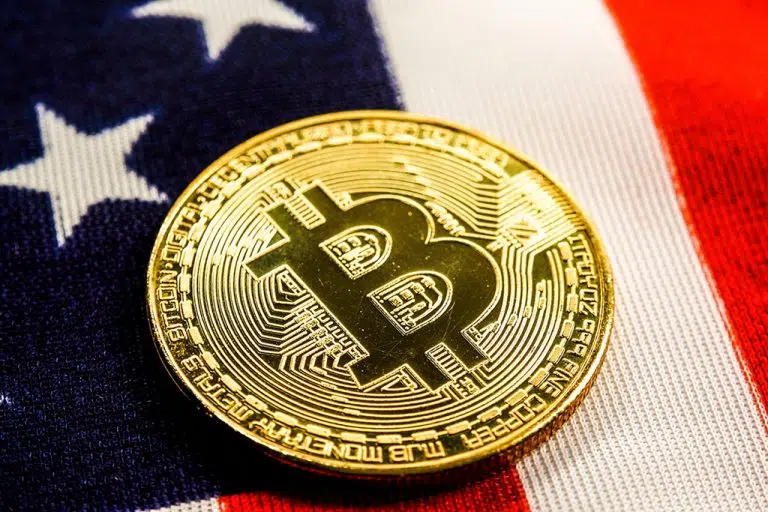
In recent years, the rise of cryptocurrencies, particularly Bitcoin, has sparked intense discussions about the possibility of adopting Bitcoin as a reserve currency. As traditional financial systems face challenges and digital currencies gain popularity, understanding the potential economic impact of adopting Bitcoin as global currency becomes critical. This extensive blog post aims to provide a comprehensive analysis of the economic implications that would arise from embracing Bitcoin as a global reserve currency. We will explore the advantages, challenges, and potential macroeconomic and socioeconomic impacts of this groundbreaking shift in the global financial landscape.
Understanding Bitcoin and Reserve Currencies
To grasp the economic impact of adopting Bitcoin as a reserve currency, it is essential to first understand the fundamentals of Bitcoin and the concept of reserve currencies. This section will provide a detailed overview of Bitcoin, its underlying blockchain technology, and its distinguishing features compared to traditional fiat currencies. We will also delve into the history and characteristics of reserve currencies, their role in the global economy, and the benefits they offer in terms of financial stability, international trade, and monetary policy.
Advantages of Bitcoin as a Reserve Currency
In this section, we will explore the potential advantages of adopting Bitcoin as a reserve currency. We will discuss how Bitcoin’s decentralized nature can foster financial sovereignty and reduce the risks associated with centralized control over monetary systems. Moreover, we will analyze how Bitcoin’s immutable and transparent blockchain can enhance financial security, reduce transaction costs, and combat fraud in global transactions. Additionally, we will explore the potential for increased financial inclusion, providing access to financial services for billions of unbanked individuals worldwide.
Challenges and Risks of Bitcoin as a Reserve Currency
While Bitcoin presents exciting advantages, it also poses challenges and risks that must be carefully considered. This section will address concerns such as price volatility, scalability limitations, regulatory uncertainties, and potential cyber threats. We will discuss the implications of Bitcoin’s price fluctuations on global financial stability and how regulatory challenges may hinder the widespread adoption of Bitcoin as a reserve currency. Furthermore, we will explore the environmental impact of Bitcoin mining and the energy consumption associated with sustaining the decentralized network.
Macroeconomic Implications of Bitcoin as a Reserve Currency
This section will analyze the macroeconomic implications of adopting Bitcoin as a reserve currency. We will examine its potential effects on monetary policy, financial stability, exchange rates, and international trade. We will explore how central banks would adjust their monetary policies in a Bitcoin-dominated financial system, the consequences for inflation and interest rates, and the potential effects on global financial stability. Additionally, we will discuss the challenges and opportunities for cross-border transactions and the potential impact on the current global monetary system.
Socioeconomic Impacts and Opportunities
In this section, we will explore the socioeconomic impacts and opportunities associated with adopting Bitcoin as a reserve currency. We will analyze its potential effects on income inequality, wealth distribution, and financial inclusion. Moreover, we will discuss the opportunities for technological innovation and economic growth in the cryptocurrency and blockchain sectors. We will also examine the potential challenges and resistance from governments, financial institutions, and regulatory bodies, as well as how they may adapt to this new financial paradigm.
Case Studies and Real-World Examples
To provide empirical evidence, this section will present case studies and real-world examples of countries or regions that have embraced Bitcoin to varying extents. We will analyze the economic impact and lessons learned from their experiences, offering insights into the potential consequences of adopting Bitcoin as a reserve currency.
Future Perspectives and Conclusion
In this final section, we will discuss future perspectives on adopting Bitcoin as a reserve currency. We will address the potential evolution of the global financial system, regulatory frameworks, and technological advancements that may shape the landscape. We will also summarize the key findings and arguments presented throughout the blog post, emphasizing the importance of further research, collaboration, and open dialogue to fully understand the economic impact of adopting Bitcoin as a reserve currency.
Conclusion
In conclusion, the economic impact of adopting Bitcoin as a reserve currency is a complex and multifaceted topic that requires careful analysis and consideration. While Bitcoin offers advantages such as financial sovereignty, enhanced security, and increased financial inclusion, it also poses challenges related to volatility, scalability, regulation, and environmental impact. Policymakers, governments, and stakeholders must engage in extensive research, dialogue, and collaboration to address these challenges effectively and maximize the potential benefits of adopting Bitcoin as a reserve currency. The ongoing global discussions surrounding the role of digital currencies in the global financial system underscore the need for continuous evaluation and adaptation to ensure a balanced and sustainable transition into this new era of finance.
Disclaimer: Information provided in this blog is only for educational purposes and must not be considered financial advice. It is recommended to do your research and consult with your financial advisor.
For further insights, trends, and information about cryptocurrencies, sign-up at Coin-E-Coins.



No Comments